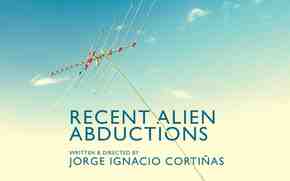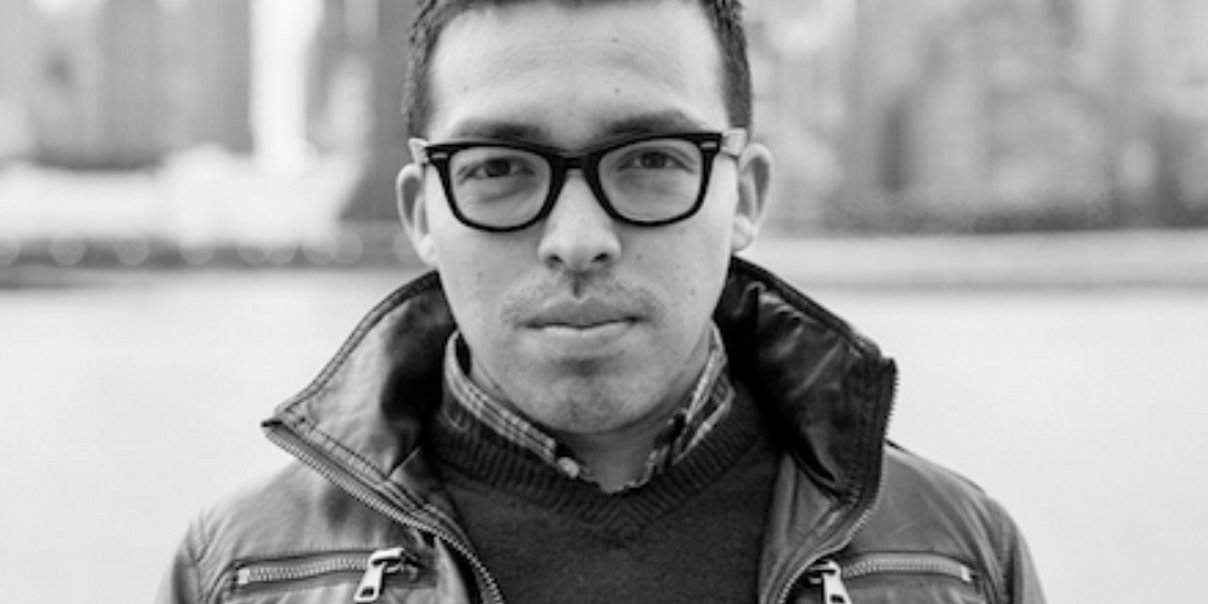

Form and Process: A Conversation with Recent Alien Abductions’ Assistant Director Michael Alvarez
Currently, a 2050 Fellow at New York Theatre Workshop, Michael has a diverse, and international, body of work – inclusive of classic and contemporary plays, new work, musical theatre, devised theatre, site specific/immersive theatre, performance art and art installations and events. He is an alumnus of the Lincoln Center Director’s Lab and a 2017 Drama League Directing Fellow; Royal Central School of Speech and Drama; and holds an MFA in Directing from California Institute of the Arts. For more information from his body of work please visit: www.michael-alvarez.com
As someone who studied performance art in London, how does your work blend traditional forms of theatre with the experimental?
I’ve often struggled with the term, “experimental”. There seems to be a sort of stigma or baggage surrounding the term. Yet, in my view, “experimental” is nothing more than a relationship with, and a rigorous interrogation into process and form. No two theatrical texts are alike; nor are two theatre artists the same. We may share a common theatrical tradition, but it is our relationship to this tradition contextualized within our unique experiences, aesthetics and viewpoints that make us singular artists. Experimental is a spirit of evolution.
I bring this spirit into my dramaturgical, formal and spacial examinations. In my work I attempt to blend our theatrical tradition with the traditions of other disciplines such as visual art, fashion, music, dance and popular culture. By queering form, and melding it with other disciplines, I am expanding the limits of our theatrical tradition and carving space for diversity, in its broadest terms.
Recently, you have been developing new musical adaptations of classic plays. What draws you to musicalizing classic plays?
I want to transcend classic work into the realm of shared experiences. One need not speak the same language to experience the awe of a musical overture nor the crescendo of a movement piece. The classics exist because something in their narrative has endured in our cultural mythology. I am interested in excavating that core, or essence, and with my collaborators figuring out how we share that through our shared experiences. And, I’m interested in how we activate classical texts through a contemporary lens and tap into the primal energy which created them in the first place.
Much of your early directorial career was international, including many productions in England and one in Slovenia. Furthermore, PlayCo produces many plays by international playwrights. What draws you to international works?
Japanese director Tadashi Suzuki once said, ‘International cultural exchange is impossible – therefore we must try.” This sentiment has always haunted me. How do we break through our own cultural lens so we can see the world in a different way? I am drawn to international and culturally diverse work because it asks us to constantly re-examine how we view and engage with the world. It spurs us to re-examine our relationship to language and form. To evolve theater, and ourselves, we must keep challenging our cultural views and assumptions. Despite all our cultural and political differences, we all share a common humanity. Our deepest needs of love, safety, survival, power, and communion (both internal and external) create the bedrock of civilizations.
As a director whose work lives at the intersection of theatre and pop culture, where do you see pop culture playing a role in the American theatre?
I don’t know if it’s quite how pop culture plays a role in American theatre, but more about theatre’s engagement with pop culture. Pop culture is about the here and now; it’s immediate, accessible and ever-changing. Shakespeare’s plays were the [Insert binge-worthy Netflix show] of his day. He pulled from what was culturally alive in his time and created something that engaged the highbrow, the lowbrow, and everything in between. We need to find what conveys that sense of cultural urgency in the fabric of our current culture and find innovative ways to express it. We need to liberate theatre from the staunchness of tradition. With the advent of television, film and the Internet, our brains have grown accustomed to images that move at a breakneck speed. How do we create work that speaks a viscerally visual language of images or how do we challenge these popular notions, like Annie Baker does in her work? Theatre can never compete with the juggernaut of film and television in terms of realism, but it can embrace its unique theatrical language and sense of community to engage our contemporary zeitgeist.
What change in American Theatre do you wish create?
I want to diversify and queer our approaches to theatre-making, building upon our traditional approaches, while expanding them and bringing them through the threshold of popular culture. I want to advocate for new voices, ideologies, and modalities that interrogate how theatre can be created in conversation with other cultures and disciplines. I want to find ways in which we can make theatre more accessible to diverse audiences. I want to make art that, to quote Wassily Kandindsky, “ is capable of educating [and] springs equally from contemporary feeling, but is at the same time not only an echo and mirror of it, but also has deep and powerful prophetic strength.”
Related Productions

Written by
Hunter Gause